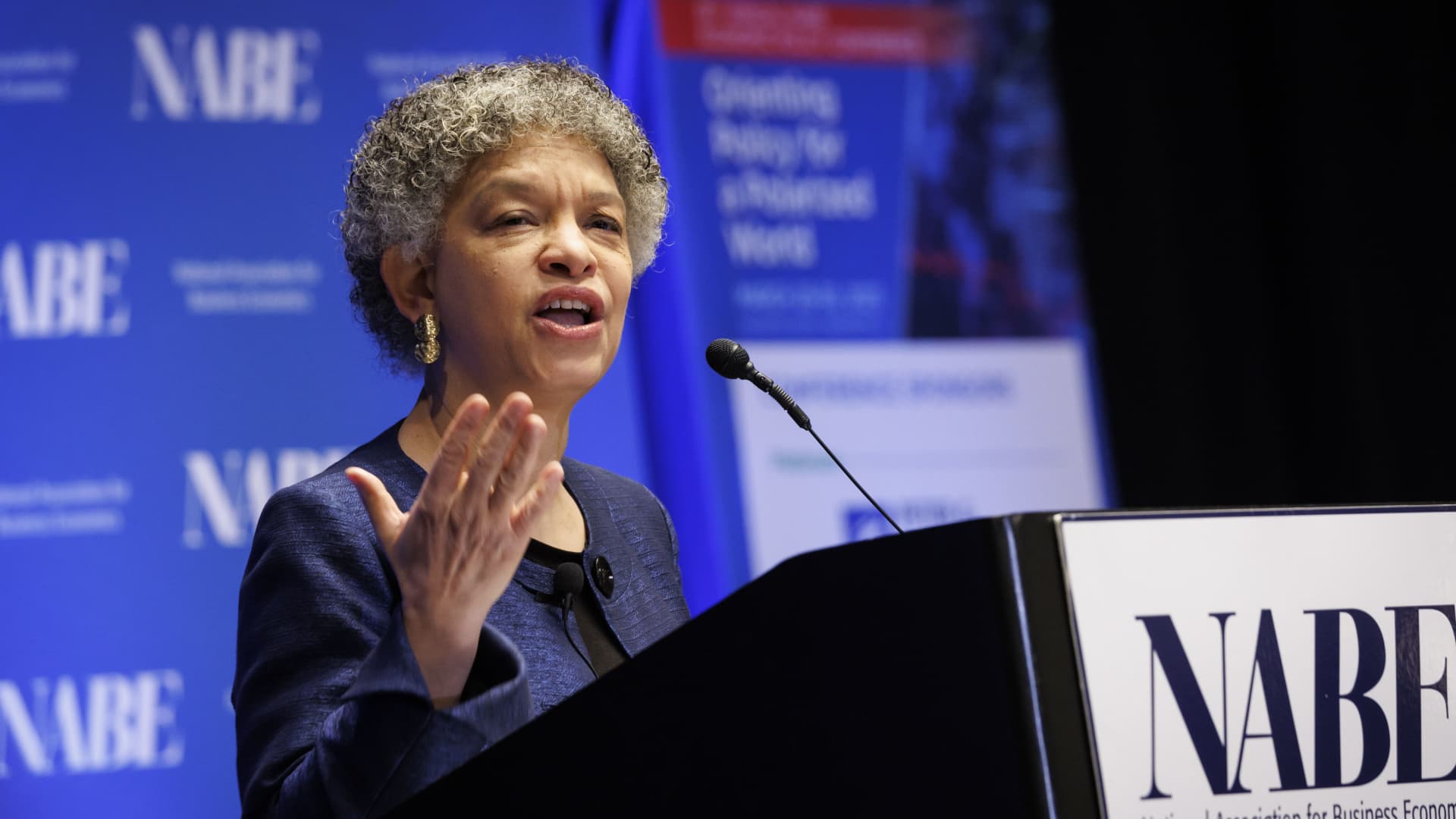Two Federal Reserve policymakers expressed support Friday for keeping interest rates elevated as the battle against too-high inflation continues.
In separate speeches, Governor Michelle Bowman and Boston Fed President Susan Collins said there’s still the possibility that the Fed will have to raise rates further if economic data doesn’t cooperate.
Bowman’s remarks were more pointed as she indicated that progress has not been sufficient in bringing inflation down to the Fed’s 2% target.
“I continue to expect that further rate hikes will likely be needed to return inflation to 2% in a timely way,” she said in prepared remarks to a bankers group on Vail, Colorado.
With the majority of the Federal Open Market Committee expecting inflation to remain above-target through at least 2025, and her own expectation that progress in the battle will be slow, it “suggests that further policy tightening will be needed to bring inflation down in a sustainable and timely manner,” Bowman said.
For her part, Collins said the recent inflation data has been encouraging though it’s “too soon” to declare victory while core inflation excluding shelter costs remains elevated.
“I expect rates may have to stay higher, and for longer, than previous projections had suggested, and further tightening is certainly not off the table,” Collins said in prepared remarks for a banking group in Maine. “Policymakers will stay the course to achieve the Fed’s mandate.”
The commentary comes two days after the rate-setting Federal Open Market Committee decided not to raise rates following its two-day meeting. Both said they supported the decision.
Both Bowman and Collins are FOMC voting members this year. The federal funds rate is currently targeted in a range between 5.25%-5.5%.
While choosing not to raise rates, officials indicated they still see one more increase coming this year, then potentially two cuts in 2024, assuming moves of 0.25 percentage point at a time.
“There are some promising signs that inflation is moderating and the economy rebalancing,” Collins said. “But progress has not been linear and is not evenly distributed across sectors.”
She also noted that the impacts of monetary policy moves, which have included 11 interest rate increases and a more than $800 billion decrease in the Fed’s bond holdings, may be taking longer to make their way through the economy due to the strong cash positions of consumers and businesses.
However, she said the path to a soft landing for the economy “has widened” and said Fed policy is “well positioned” to achieve a decrease in inflation while not sending the economy into recession.
